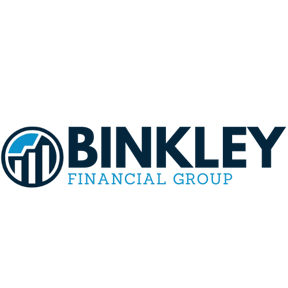Life Insurance for Business Owners: Protecting Your Business and Family
Learn how life insurance can help business owners protect their business and ensure financial stability for their families.
Brandon Binkley
8/8/20243 min read


Introduction:
As a business owner, you have unique financial responsibilities and considerations that go beyond your personal needs. Life insurance can play a crucial role in protecting your business, ensuring its continuity, and providing financial stability for your family and business partners. This post will explore the importance of life insurance for business owners, the types of policies to consider, and how to implement life insurance strategies to safeguard your business.
Why Business Owners Need Life Insurance:
Business Continuity:
Purpose: Life insurance can ensure the smooth continuation of your business in the event of your death.
Impact: Provides the necessary funds to cover operational costs, payroll, and other expenses, allowing the business to continue running smoothly.
Funding Buy-Sell Agreements:
Purpose: A buy-sell agreement is a legally binding contract that outlines how a partner’s share of the business will be handled if they die, become disabled, or leave the business.
Impact: Life insurance can fund these agreements, ensuring that the necessary funds are available to buy out the deceased partner’s interest, preventing disruption and ensuring fair compensation.
Key Person Insurance:
Purpose: Key person insurance is a policy taken out by a business on the life of a crucial employee whose death would significantly impact the company.
Impact: Provides financial support to cover the costs associated with finding and training a replacement and offsets potential revenue losses.
Debt Repayment:
Purpose: Life insurance can cover outstanding business loans, ensuring that your family or business partners are not burdened with debt.
Impact: Prevents the need to liquidate business assets to repay loans, preserving the value and continuity of the business.
Types of Life Insurance for Business Owners:
Term Life Insurance:
Overview: Provides coverage for a specific period, typically 10, 20, or 30 years. Ideal for covering temporary needs such as funding a buy-sell agreement or key person insurance.
Benefits: Affordable premiums and straightforward coverage.
Whole Life Insurance:
Overview: A type of permanent life insurance that provides lifelong coverage and includes a cash value component that grows over time. Suitable for long-term needs such as estate planning and ensuring business continuity.
Benefits: Guaranteed death benefit, fixed premiums, and cash value accumulation.
Universal Life Insurance:
Overview: Offers flexible premium payments and death benefit amounts, with the potential for cash value growth based on market interest rates. Ideal for business owners needing flexibility in their coverage.
Benefits: Adjustable premiums, lifelong coverage, and potential for cash value growth.
Implementing Life Insurance Strategies:
Establish a Buy-Sell Agreement:
Step: Work with a legal professional to create a buy-sell agreement that outlines how ownership interests will be transferred if a partner dies, becomes disabled, or leaves the business.
Action: Fund the agreement with life insurance policies on each partner, ensuring that the necessary funds are available to execute the agreement.
Purchase Key Person Insurance:
Step: Identify key employees whose loss would significantly impact the business.
Action: Purchase life insurance policies on these key employees, providing financial protection for the business.
Cover Business Loans:
Step: Assess your business's outstanding debts and financial obligations.
Action: Purchase life insurance policies that provide sufficient coverage to repay these debts, ensuring the business remains solvent.
Incorporate Life Insurance into Estate Planning:
Step: Consult with a financial advisor to integrate life insurance into your estate plan, ensuring your business interests are protected and your heirs are provided for.
Action: Consider creating an irrevocable life insurance trust (ILIT) to keep the death benefit out of your taxable estate.
Case Study:
Scenario: Jane, a 55-year-old business owner, wants to ensure her business remains stable and secure for her family and business partners.
Financial Goals:
Business Continuity: Ensure the smooth operation of her business in the event of her death.
Buy-Sell Agreement: Establish a buy-sell agreement with her business partner.
Key Person Insurance: Protect the business against the loss of her top executive.
Debt Repayment: Cover outstanding business loans.
Strategy:
Term Life Insurance: Purchase term policies to fund the buy-sell agreement and cover key person insurance.
Whole Life Insurance: Invest in a whole life policy to ensure business continuity and provide for her family's financial security.
Universal Life Insurance: Use a universal life policy to cover business loans and provide flexible financial protection.
Outcome: Jane’s comprehensive life insurance plan ensures her business remains stable and secure, providing financial protection for her family, business partners, and key employees.
Conclusion:
Life insurance is a vital tool for business owners to protect their business and ensure financial stability for their families and partners. By understanding the different types of life insurance and implementing strategies such as buy-sell agreements, key person insurance, and debt repayment coverage, you can safeguard your business against unexpected events. Whether you choose term life insurance for its affordability or permanent life insurance for its lifelong benefits, the right policy will help ensure the continuity and stability of your business.
Durango, Colorado
+17194637116
info@binkleyfinancialgroup.com
Find us On Social
Contact Us
Copyright ©2024 | Binkley Financial Group | All rights reserved
